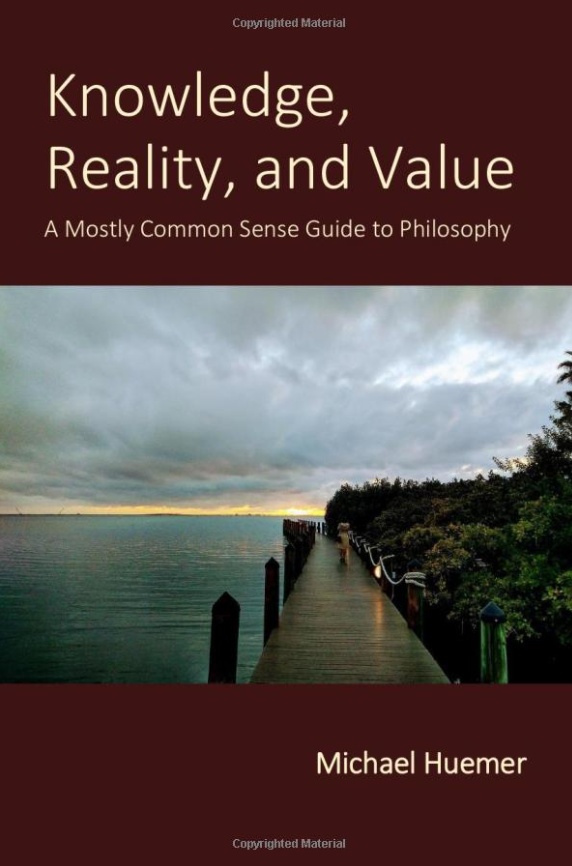
Here are my replies to your comments on Part 3 of the Huemer Book Club.
[I]n the reading I’ve done on the free will debate, I’ve never heard anyone argue that the predictability of behavior is evidence against free will. (Possibly due to the fact that most of the arguments I’ve read have come from philosophers and neuroscientists rather than social scientists?) I usually hear a nearly opposite sentiment – even those who argue strongly against free will also argue that this does not imply predictability of human behavior – Steven Pinker, David Eagleman, Robert Sapolsky, Sam Harris, Dan Wegner, Susan Blackmore, and Patricia Churchland come to mind.
Fans of social science often argue that behavior is predictable, so we don’t have free will. This isn’t the same thing as arguing that we have free will because behavior isn’t predictable. Though in Bayesian terms your probability of determinism should at least slightly rise as predictability goes up.
Of course, sometimes failing to find or come across evidence for the existence of x is itself evidence against the existence of x. If I’m wondering whether there’s an intruder hiding in my house and I look all around and fail to find “any evidence of” an intruder, I should downgrade my credence in there being an intruder. But in that case I’ve actually come across evidence against the existence of an intruder. If looking and seeing an intruder hiding in my closet is evidence of an intruder, as it obviously is, then looking and not seeing an intruder hiding in my closet is evidence against an intruder (at least on a Bayesian framework). But if I don’t look around the house, and just sit there, the fact that I don’t gain or have any evidence of an intruder isn’t evidence against an intruder: my prior regarding the existence of an intruder should remain unchanged.
I don’t think we disagree. When I say “absence of evidence,” I’m picturing a situation where you could have found some evidence, not when you’re simply “out to lunch” or having zero relevant experiences. Though isn’t the fact that no intruder has revealed himself while you’re inside the house a relevant experience?
How does one really disagree with the idea that all human behavior can be traced to physical causes? Doesn’t the libertarian free will argument have to assume that humans are someone exempt from the laws of nature that govern literally everything else? I don’t even know what it would mean for human choice to operate independently of causal/deterministic networks.
I don’t even know how you could not even know this. If “human choice does not operate independently of causal/deterministic networks” is meaningful to you, how can the negation not be meaningful? Even in math, I know what “1+1=3” means. The proposition is false, but still meaningful.
The argument about how alcoholics can choose not to drink if they want is totally beside the point. Of course in some sense this is true. But the determinist simply believes that whatever choice is made is the product of previous causes (from both nature/nurture, brain/environment, etc).
On this story, being an alcoholic would be no less free than anything else, right? Which is what I was trying to convince Huemer of.
Upon inspection, the Gospels say surprisingly little about Jesus’ look — quite the opposite of what Bryan calls “very specific.” Instead, the Gospels narrate at a breathtaking pace, focusing squarely on Jesus’ deeds and pronouncements, about righteousness, problems of living, and social tensions.
My point is not that Christians meet the burden of proof. My narrow point is that portrayals of Jesus in the Gospels aren’t implausibly specific.
I’m thinking of details like the story of Jesus’ birth (including Herod’s alleged Massacre of the Innocents) and his meet-up with John the Baptist. Though it’s the fantastic parts of the story – born of a Virgin, raised from the dead, and so on, that move the traditional story from somewhat implausible to incredibly unlikely.
Final point: Several readers pointed out that in Huemer’s “Made by God” crystal hypothetical, he specified that the writing emerged as a result of the “laws of nature.” I missed this stipulation of the hypothetical. I still think it would be vastly more likely to result from advanced aliens than “God,” but I concede that (like any Biblical-style miracle) would be some slight evidence for God’s existence.

READER COMMENTS
James
Jul 1 2021 at 4:28pm
Bryan,
In the earlier post you wrote “determinism is a supremely unscientific theory that begins by throwing away ubiquitous conflicting evidence that each of us experiences”
Can you clarify what conflicting evidence you have in mind? When I do things, I certainly have the experience of believing that I could have done otherwise. Do you mean to say that my experience of believing I have free will while I do things is evidence that I actually have free will? What if observe myself believing that I could not have done otherwise?
Comments are closed.